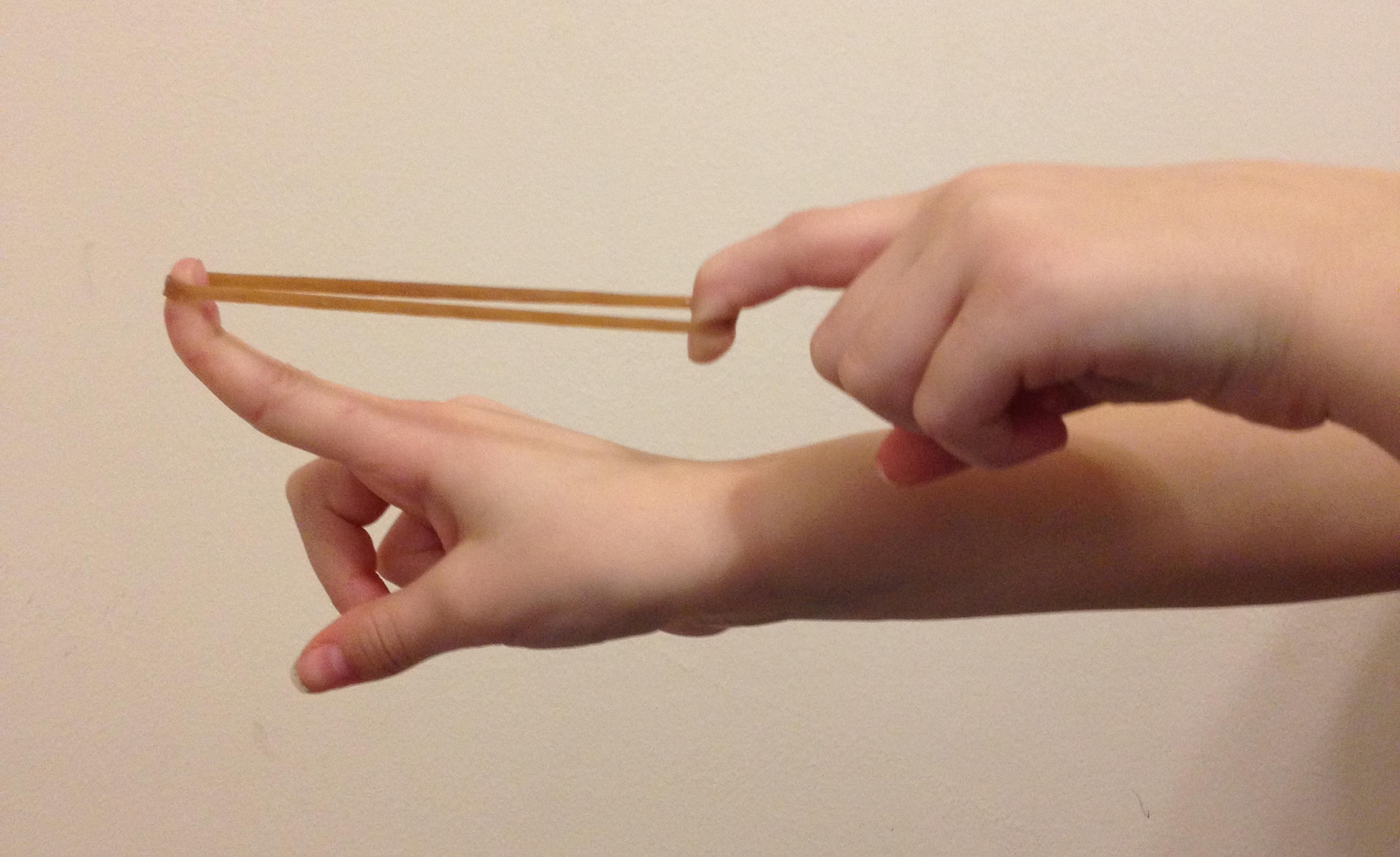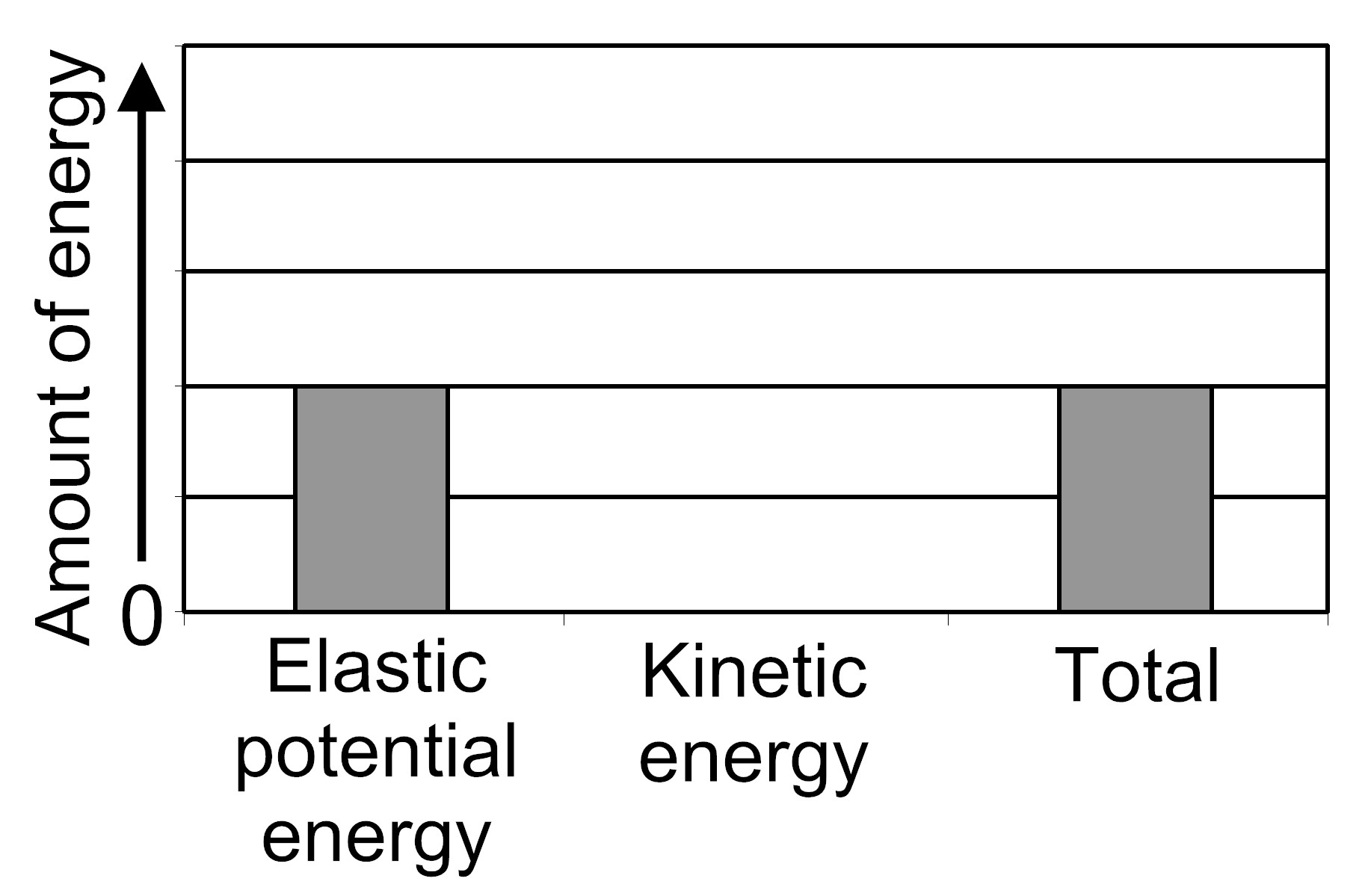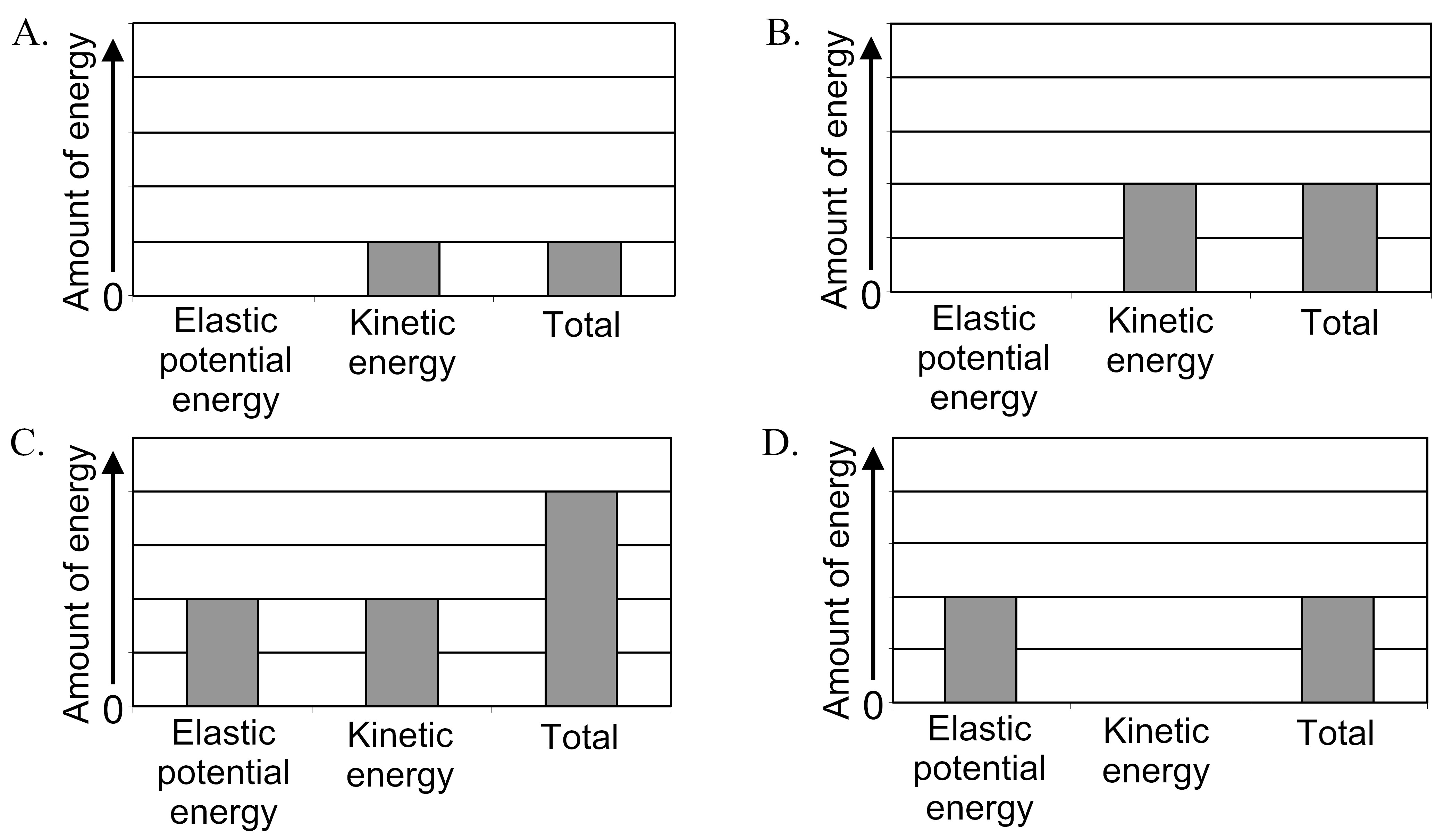Item NG088004: When a student shoots a rubber band across the room, the elastic energy of the rubber band is transformed into motion energy, and the total amount of energy stays the same. (This item uses bar graphs to depict the amount of each kind of energy.)
A student stretches a rubber band. The graph shows the amount of elastic potential energy the rubber band has before he lets go of it. The graph also shows the amount of kinetic energy (motion energy) the rubber band has before he lets go of it and the total amount of elastic potential energy and kinetic energy in the system.


The student lets the rubber band go and it flies across the room. Which of the following graphs represents the elastic potential energy, kinetic energy, and total amount of elastic potential energy and kinetic energy of the rubber band as it flies across the room and is no longer stretched? (Assume that no energy is transferred between the rubber band and the air around it and that any changes in the thermal energy and gravitational potential energy of the rubber band are so small that they can be ignored.)

Answer Choice |
Overall |
Grades |
Gender |
Primary Language |
||||
|---|---|---|---|---|---|---|---|---|
| n = 1501 |
4–5 n = 77 | 6–8 n = 818 |
9–12 n = 606 |
Male n = 714 |
Female n = 747 |
English n = 1352 |
Other n = 95 |
|
| A. | 14% | 21% | 14% | 14% | 15% | 14% | 14% | 20% |
| B. | 34% | 27% | 30% | 41% | 36% | 32% | 34% | 36% |
| C. | 38% | 25% | 41% | 35% | 36% | 39% | 38% | 35% |
| D. | 14% | 26% | 15% | 10% | 13% | 15% | 14% | 9% |

